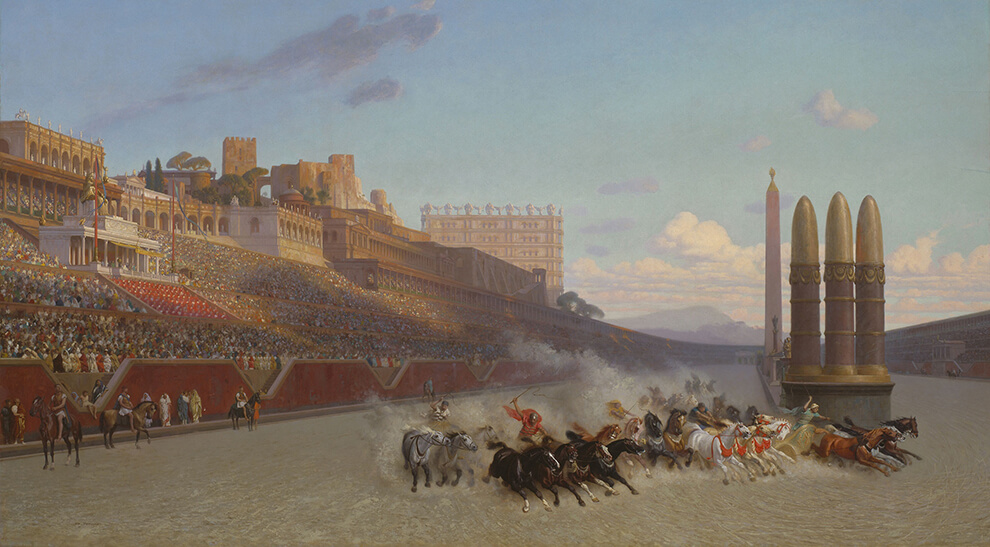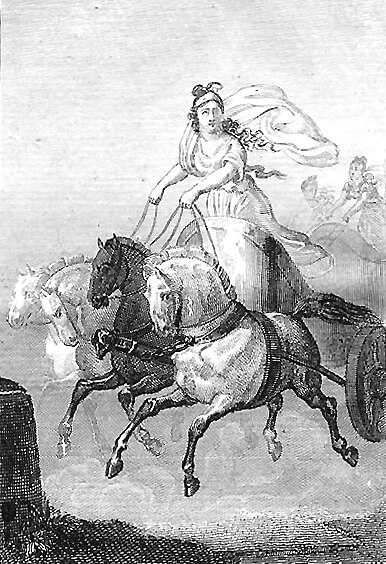
Cynisca: The Spartan Princess Who Was the First Female to Win an Olympic Medal
In modern days, it’s unthinkable that women wouldn’t be allowed to compete at the Olympics. But at one point, they weren’t, and it was actually punishable by death for them to just attend. Luckily we are long past those days, but it wasn’t without women breaking the ranks and paving the way for other women. One of those women was Cynisca.
Cynisca was a Spartan princess who lived in the 4th century BC. Her father was King Archidamus and her brother was King Agesilaus II, one of the most famous warriors in Greece. She had a full Spartan education, which was progressive at that time. Women in other cultures weren’t taught much of anything, but she received a full Spartan education, learning reading, and about athletics and the military. Being a woman though, she did not receive combat training. But the Spartans encouraged independence in women, learning how to manage property and defend themselves (possibly at the same time in case she didn’t get along with the neighbors?) Men lived separately from women, and were often gone for battle anyway, so it made sense that the women needed to know how to run things.
Chariot Pursuits

Cynisca grew up in wealth, with her family supporting her love of horses. She was able to spend a lot of time learning about horses and racing. Even from a young age she had her sights set on the Olympics.
Not much is known about her early life, but according to many sources, she had a large estate devoted entirely to her horse training and chariot racing pursuits.
Her brother was a great supporter and motivator, although his own motivations may have been questionable. Some sources suggest he encouraged her because he felt like horse racing didn’t require any skill like other Olympic sports, or because he thought it was an unmanly sport. One thought is that he encouraged his sister because her winning would discredit the sport.
But it’s also theorized that he was just trying to advance his own political career by associating with her. Cynisca became famous. Even Xenophon, famed horseman, wrote about her. An association with her could boost his own ambitions.
The Olympics
Cynisca trainer her team herself. She was going to win an Olympic event, at a time when even viewing the events as a woman was punishable by death. She sidestepped this by hiring a male team to drive her horses.
In 396 BC, Cynisca entered her horses in the Olympic chariot race. She was the first woman owner to ever do so, and she faced a lot of opposition from the male athletes and spectators. However, Cynisca was determined to win, and she did just that. Back then, just like now, horse race wins are awarded to owners, not the riders, so she officially won the Olympic medal. She became the first woman to win an Olympic event. In 392 BC, she entered again, and had another win.
It should be noted that her win did nothing to turn away anyone from continuing to race horses, so if that was her brother’s motivation, it did not work.
Cynisca was proud of herself, as she should be. So proud, she had an inscription made.
Kings of Sparta are my father and brothers
I, Kyniska [Cynisca], victorious with a chariot of swift-footed horses,
have erected this statue. I declare myself the only woman
in all Hellas to have won this crown.
Appelleas son of Kallikle made it.
Cynisca’s inscription from Olympia
Cynisca’s victories in the Olympics inspired other women to participate in sports and athletics. In 368 BC, the Spartan woman Euryleonis sent her team in for the two horse chariot event and won.
In the modern world, it’s easy to overlook what it took to get us to this point. Cynisca’s victory inspired and encouraged other women to go against the grain and pursue the things they wanted to do. We should all remember what it took to get us here, and continue to push ourselves to go after the things we want to accomplish, regardless of how difficult they seem.
More about ancient Greece and horses

King Henry VIII and His Horses - An Equestrian Life
[…] Cynisca, The Spartan Princess who won the Olympics […]